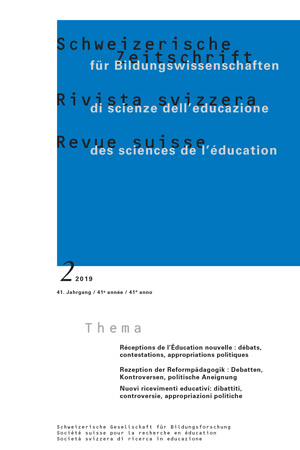Spain, a laboratory of the «New Education»?
DOI:
https://doi.org/10.24452/sjer.41.2.7Keywords:
«New Education», Ferrières, Freinet, Spain, Interwar periodAbstract
Although not an educational «Mecca», interwar Spain contributed like the rest of Europe to the circulation of innovative ideas and practices, among which those of the so-called «New» Education. Through two examples, this article aims to observe this circulation on two different scales. On the one hand, that of major urban hubs – thriving environments for cultural elites – that Adolphe Ferrière visited in 1930. On the other hand, that of rural areas – doomed to subalternity – where Freinet’s methods were taken over by two teachers fighting against illiteracy and cultural isolation. Though these experiments were legitimated and enhanced during the Second Republic’s Golden Age of ‘Educational Missions’ in response to the new political imperative, their legacy has not survived equally over time.



